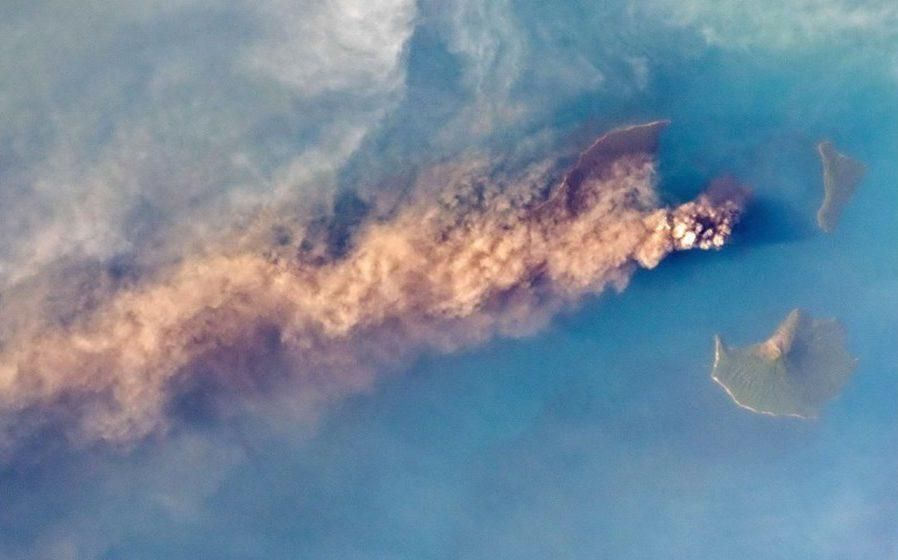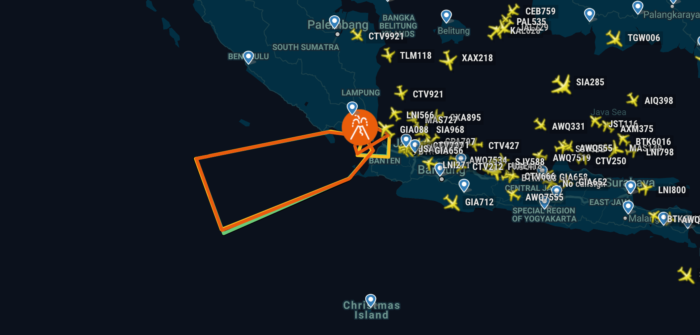Following volcanic activity from the Krakatau (Krakatoa) volcano in Indonesia, a level three alert has been issued in the area. Given the severity of volcanic ash when it comes to aviation, this has the potential to cause severe disruption at Jakarta airport which is just 150km away from the volcanic eruption.
Krakatoa famously erupted in 1833 causing at least 36,417 deaths. The most recent incident has so far caused a devastating tsunami, in addition to rerouting flights. As of yesterday, up to 25 flights were affected by rerouting, however, this could rise if the ash spreads.
Why Is Volcanic Ash Bad?
One could say that flying through volcanic ash is equivalent to rubbing all over an aircraft with very abrasive sandpaper. The volcanic ash is formed of many many tiny particles of rock. When an aircraft flies through a volcanic ash cloud, all of the particles of rock hit the aircraft at around the speed the aircraft is travelling. This has been known to make the cockpit windscreen translucent. Rather more alarmingly, the volcanic ash plays havoc in the engines of an aircraft, causing them eventually to fail.
The threat of volcanic ash to aviation was realised in 1982 when a British Airways B747 operating BA9 flew through a cloud of volcanic ash from a nearby volcano. The aircraft lost all four engines while in the cloud, however, managed to restart them outside the cloud. One engine went on to fail again. The aircraft was forced to divert to Jakarta, where the extent of the damage caused was discovered. Earlier this month, a Brussels Airlines A330 lost both engines during a flight.
More Recent Incidents
The most famous incident of volcanic ash causing disruption was the 2010 eruption of the Icelandic Eyjafjallajökull volcano. Following a large amount of ash being released from the volcano, most of Europe's airspace closed. Much like passengers affected by the recent drone disruption, some Simple Flying staff were turned away from Gatwick Airport at EasyJet cancelled all flights. According to the IATA, the total losses caused by the volcanic eruption amounted to US$1.7 billion, further highlighting the seriousness of volcanic ash.
What's Next For Indonesia?
Currently, the exclusion zone around the eruption remains quite small. No people are known to be within the exclusion zone. Reports suggest that the ash has reached 23,482 feet from sea level. While it looks as though the ash could be dissipating at high levels by now, it is still being observed continuously rising to flight level 100.
The situation could change vastly if another eruption occurs. Residents local to the volcano are being advised to stay away from beaches, amid fears of further eruptions triggering more Tsunamis. Simple Flying will keep readers informed if the situation continues to develop.
Have you been affected by the volcanic eruption? Let us know in the comments down below.



